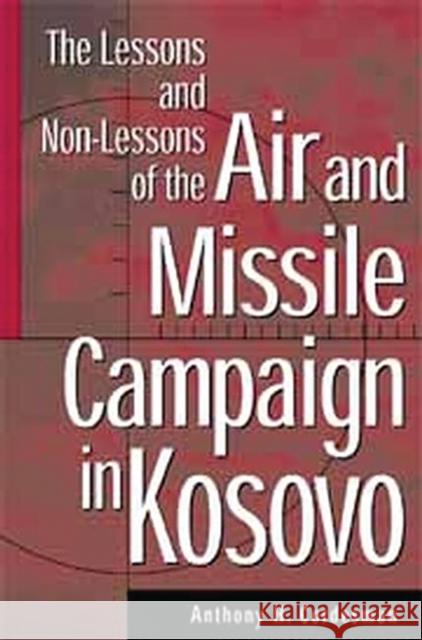The Lessons and Non-Lessons of the Air and Missile Campaign in Kosovo » książka
The Lessons and Non-Lessons of the Air and Missile Campaign in Kosovo
ISBN-13: 9780275972301 / Angielski / Twarda / 2001 / 416 str.
The conclusion of a war typically signals the beginning of a flood of memoirs and instant campaign histories, many presenting the purported, but often dubious lessons of the recent conflict. Cordesman is careful to avoid such pitfalls in this detailed and closely reasoned analysis, and helps us to begin to understand the implications of this dramatic conflict on its own terms. Based on a combination of official and unofficial (but always authoritative) sources, he builds a thorough case for the true lessons of NATO's first battle fought within Europe.After consideration of the historical, major political, and strategic factors that set the stage for the Kosovo campaign, Cordesman critically examines the actual effectiveness of the NATO air campaigns, both in Kosovo and Serbia proper. Operations in this rugged part of Europe were difficult, and compounding the challenges of terrain and weather were the conflicting national agendas within the Allied coalition that seriously hampered focused and decisive action by NATO. Although Milosevic ultimately conceded defeat, all of these factors played an important role in limiting the intensity and shaping the military outcome of the campaign, and the likely political and strategic results were far from certain. Cordesman unflinchingly concludes, that the air campaign over Kosovo exposed deep fault lines within and among the NATO countries and fundamental flaws in the way the West wages war.











